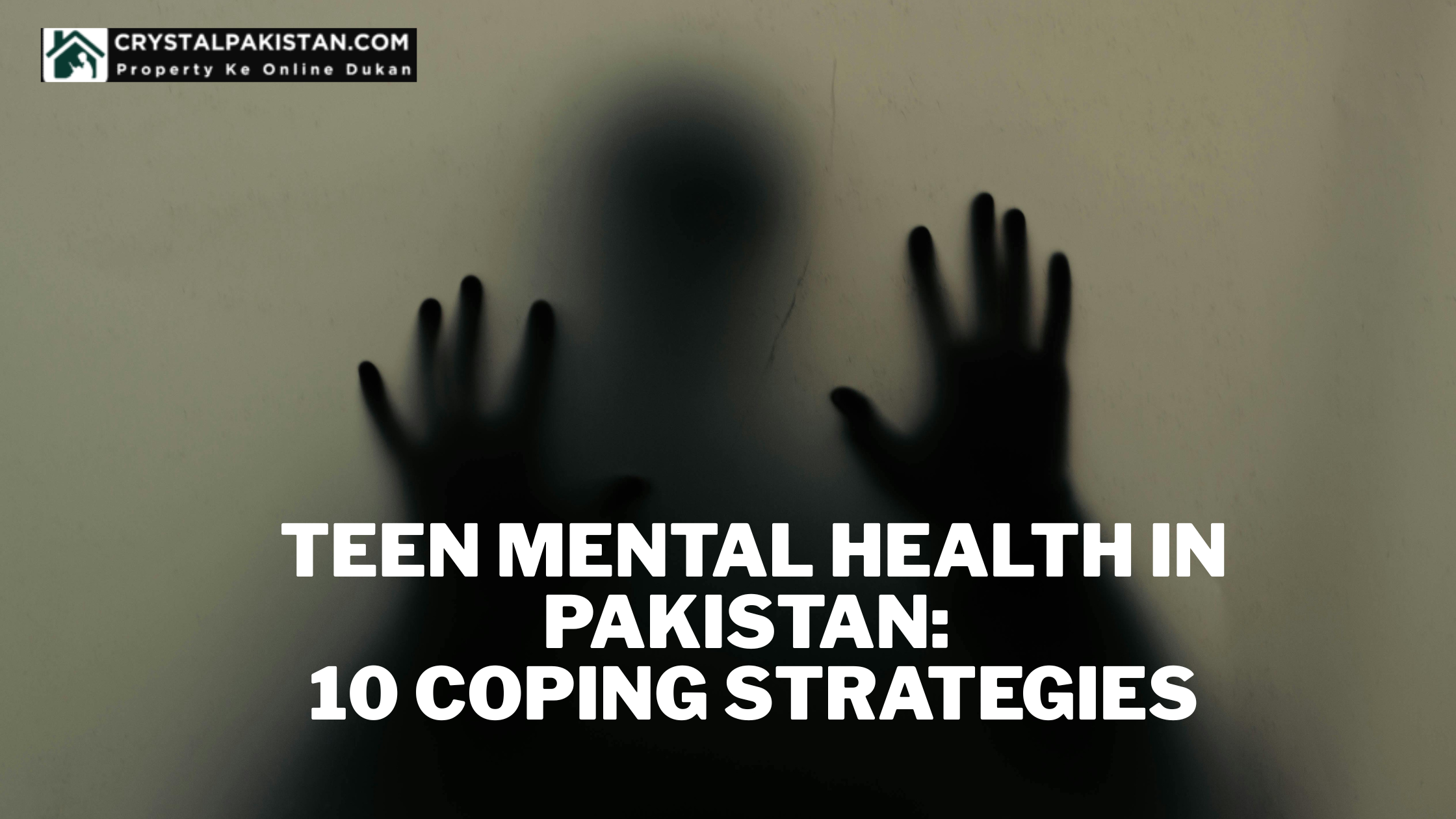Teen mental health is always at risk because teenage life is a delicate balance of growth, discovery, and pressure. School demands, social expectations, body changes, and the ever-present digital world combine to create overwhelming challenges for many teenagers.
Recent findings reveal a sobering fact: 15% of Pakistani youth suffer from mental health disorders, according to neurologists at the Neurology Awareness and Research Foundation (NARF) on World Brain Day 2025. This concern mirrors global trends, with nearly 43% of people worldwide living with neurological or mental health conditions.
These figures highlight why mental health should be seen not just as the absence of illness but as a foundation of overall well-being and dignity. Let’s explore how you can manage your mental health with 10 practical coping strategies in this blog.
Barriers Teens Face
Teenagers don’t only face personal struggles. Broader systemic and social issues add to their difficulties:
- Severe shortage of specialists
Pakistan has just around 400 neurologists for its population, leaving most hospitals without psychiatric services. - Stigma and misconceptions
Mental health remains taboo in many communities, preventing early conversations and care. - Environmental and social pressures
Poor maternal healthcare, environmental pollution, and low immunization rates contribute to higher risks of mental illness in children. - Rising neurological concerns
Stroke cases in Pakistan have doubled in the past decade, showing the urgency of brain health awareness.
Ignoring these barriers means ignoring the well-being of an entire generation.
Why It Matters
Mental health is not only about treatment; it is about prevention, resilience, and a better quality of life. Left unaddressed, teen mental health issues can lead to lifelong struggles, affecting academic performance, relationships, and career opportunities.
Creating awareness and equipping teens with coping strategies is the first step toward long-term wellness.
10 Coping Strategies for Teen Mental Health Resilience
1. Talk with Someone You Trust
Opening up to a sibling, parent, or counselor lightens emotional burdens and prevents isolation.
2. Practice Mindfulness
Daily breathing exercises or short “mind breaks” reduce anxiety and encourage calm focus.
3. Move Your Body
Exercise releases endorphins, easing stress and boosting self-confidence. Even a brisk 20-minute walk helps.
4. Prioritize Quality Sleep
Teens need 8–10 hours of sleep. Consistent routines improve mood, focus, and academic performance.
5. Limit Social Media Overuse
Mindful digital habits reduce comparison stress and prevent information overload. Offline hobbies offer balance.
6. Get Creative
Art, writing, or music provide healthy outlets for emotions and stimulate positive self-expression.
7. Build Supportive Friendships
Spending time with encouraging, respectful peers builds resilience and provides comfort in tough times.
8. Practice Relaxation Techniques
Yoga, stretching, or deep breathing during study breaks restores calm and concentration.
9. Seek Professional Guidance
When stress feels unmanageable, counseling or therapy provides expert support. Overcoming stigma is crucial.
10. Keep a Gratitude Journal
Noting one good thing daily reshapes perspective, reduces stress, and fosters long-term optimism.
Building a Healthier Mental Health Ecosystem
Experts urge Pakistan to take urgent, collective action for teen mental health:
- Expand services: Train more specialists and integrate mental health programs in schools and clinics.
- Fight stigma: Run nationwide awareness campaigns to normalize help-seeking.
- Support families: Provide resources that help parents recognize warning signs early.
- Policy focus: Ensure affordable, accessible treatment nationwide, especially in underserved areas.
Takeaways
Mental health is not a luxury; it is a human right. If 15% of Pakistani youth are struggling, it affects not just individuals but families, communities, and the nation’s future. But change is possible. When teens learn coping skills, when families embrace open conversations, and when society breaks the stigma, resilience becomes the norm rather than the exception. Every small step counts. A daily walk, a mindful pause, a supportive word, all of these can make the difference between despair and hope. The future of Pakistan lies in the well-being of its youth. Let us choose to invest in teen mental health today so that tomorrow, they step forward not with fear, but with strength, dignity, and purpose.
FAQs
What is the mental health of youth in Pakistan?
Around 15% of Pakistani youth suffer from mental health disorders, including anxiety, depression, and stress. Limited awareness and lack of access to services make the situation more challenging.
What are three causes of youth mental health issues?
The top three causes are academic pressure, social media influence, and family conflicts. These stressors often trigger anxiety, low self-esteem, and emotional struggles in teenagers.
What are the mental health issues in Pakistan?
Common mental health issues in Pakistan include depression, anxiety, substance abuse, and stress-related disorders. Stigma and lack of resources worsen the crisis.
What are the 10 causes of mental health?
The main causes include genetics, trauma, abuse, social isolation, academic stress, financial struggles, peer pressure, chronic illness, family conflicts, and substance abuse.
Why is mental health an issue for youth?
Youth face rapid changes in academics, relationships, and identity development, making them more vulnerable to stress and emotional instability. Without support, these challenges can affect long-term well-being.
Sources: GEO TV, Daily Times
Mariam Jabeen – Passionate Content Writer
I write because it’s more than a skill, it’s my passion. Every word I craft is a piece of me, designed to inspire and connect.



Join The Discussion